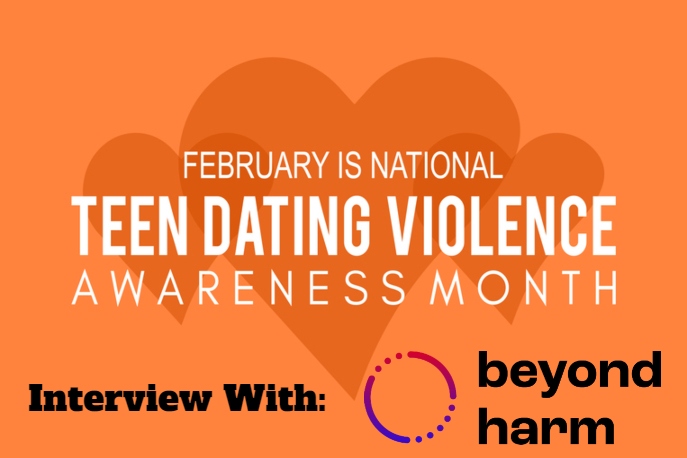Credit: Rana Hamid
Working with young people can be an incredibly fulfilling experience. They bring enthusiasm, new perspectives, and an energy that can shape any room. However, being the adult in the room means that you have an extra responsibility to young people in ensuring that they are in the company of people who prioritize their safety and health.
As teens begin to enter the dating scene, their lack of experience has the potential to become more vulnerable to unhealthy or dangerous dating situations. In 2010, Congress established February as Teen Dating Violence Awareness and Prevention Month. Since then, the work to combat and end the cycle of teen dating violence has only grown.
This year, RALIANCE was proud to announce Beyond Harm as one of our six 2024 grantees. They plan to use the grant funding to conduct research at HBCU Dillard University to disrupt cycles of abuse and sexual violence through modifying perpetrator behavior. As people with a continued history of working with teens and young people, we were thrilled to have the opportunity to ask them for their perspective on teen dating violence this month.
What do you think is the most common misunderstanding about teen perpetrators of dating violence?
“One thing I hear sometimes in the general public about teen domestic violence is that it’s “just a phase” caused by peer pressure, a lack of communication skills, or social immaturity. To be sure, kids need help developing empathy, social skills, and training on what healthy relationships look like, particularly when they are often meeting and interacting so much online. But despite the lack of skills and awkwardness of adolescence, most teens do not go on to abuse their dating partner. Just like adults, some teens have distorted, pro-abuse beliefs from what they’ve seen and learned. It’s a mindset that requires excuses, justification, and minimization of harm – it’s a belief that domination and manipulation are the ways to get what you want. If we as parents, teachers, and community members minimize it, then we add to that pro-abuse narrative.”
What is the most important message adults can give to teens to prevent teen dating violence?
“Adults need to stay consistent in the messaging around abuse and violence. If we waver and justify some behaviors based on bias and circumstance, it sends mixed messages about it being acceptable sometimes. But ultimately, nothing you say matters as much as what you do. The way we behave towards each other and towards them has a much larger impact than anything we can say. And certainly, if our words and behaviors don’t line up, youth pick up on hypocrisy very quickly and won’t trust us.”
What are the most effective methods of disrupting the cycle of teen dating violence?
“No one prevention or intervention strategy is effective on its own- we must approach it holistically. We need to have comprehensive mental health services to address widespread childhood trauma, healthy relationships, and consent training as a part of every school curriculum, and behavioral interventions from people who understand abuse when we start seeing signs of perpetration. Youth need clear guidelines and then meaningful and fair consequences for breaking those guidelines, not punishment. We must reduce the risk factors and build up the protective ones. One of the best protective factors is having at least one trusted adult who youth can go to even when they feel ashamed or afraid. So we should all strive to be that adult for someone. The good thing is, that youths’ brains and beliefs are often more malleable than adults and they can absolutely change course with the right people on their team.”
While we don’t all work in spaces that directly cater to the needs of young people, all employers who employ young people should embrace the spirit of Teen Dating Violence Awareness and Prevention Month. By following the understanding of teen dating violence perpetration and ways to break the cycle as laid out by Beyond Harm, we can all have a more solid foundation to treat this issue. For employers who employ young people, this awareness is vital to their organization’s overall prioritization of employee wellness.
As employers, we can have a role in prevention and healing by:
-Providing access to mental health services for both victims and perpetrators
-Having the contact information for local and national resources for people in abusive situations
-Familiarize yourself with the warning signs of abuse
-If you are concerned, check in with your colleague and ask if they would like to connect with an advocate in their area. Providing a non-judgmental, listening ear can be a powerful support. Respect that they may not be ready to talk about the abuse or take any steps. Remember, it is unwise to presume when it comes to someone’s safety.
-Emphasize to all employees that you are a safe space to turn to if they are in trouble
This month and every month, let us all model healthy behaviors for the teens in our lives to look up to!
National Dating Abuse Hotline (co-created by Break the Cycle): 1.866.331.9474 or text “LOVEIS” to 22522
RALIANCE is a trusted adviser for organizations committed to building cultures that are safe, equitable, and respectful. RALIANCE offers unparalleled expertise in serving survivors of sexual harassment, misconduct, and abuse which drives our mission to help organizations across sectors create inclusive environments for all. For more information, please visit www.RALIANCE.org.

